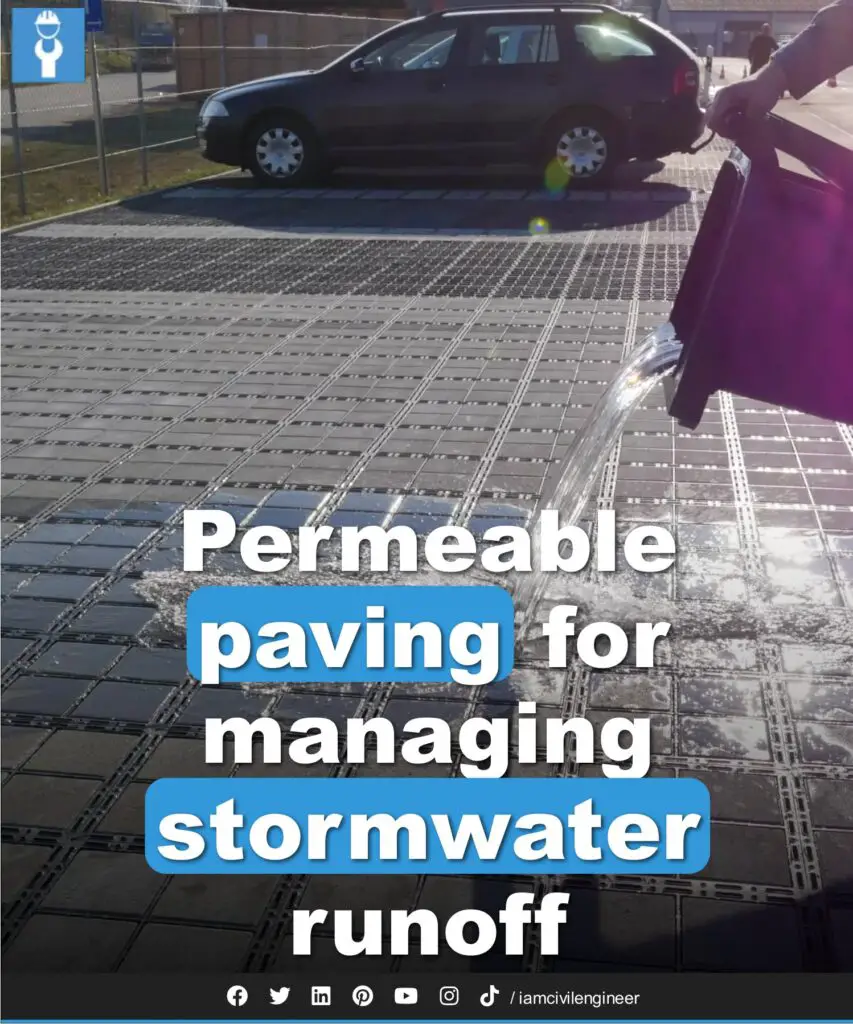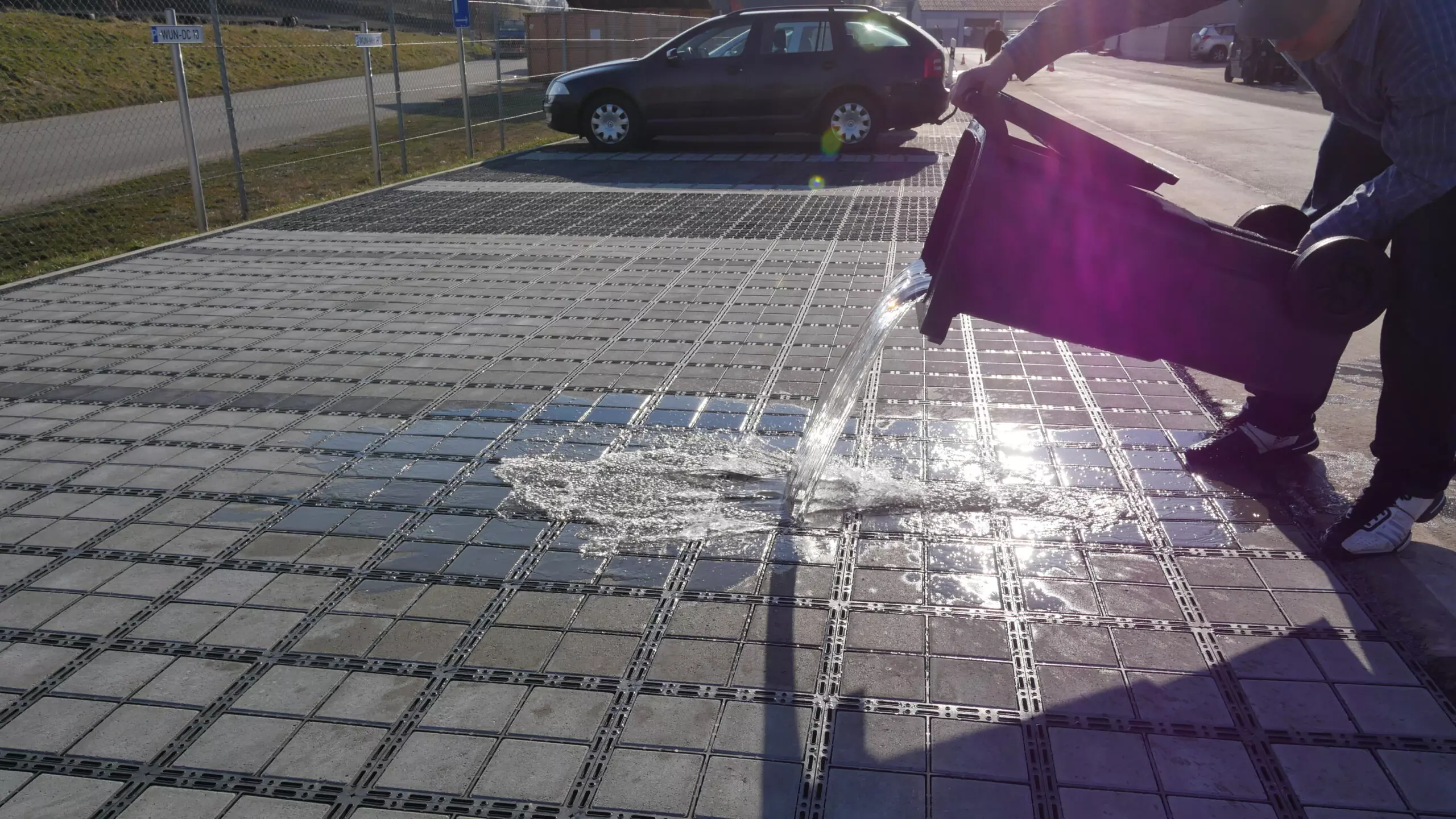Permeable paving is a versatile and technologically advanced solution for managing stormwater runoff in various applications such as roads, parking lots, and pedestrian walkways.

Pervious concrete
Pervious concrete is a specially designed concrete mixture that incorporates coarse aggregates and reduced amounts of fine aggregates, resulting in a highly porous material. It allows water to pass through the pavement surface and infiltrate into the underlying soil. Pervious concrete pavements offer excellent stormwater management benefits by reducing the volume and rate of runoff, replenishing groundwater, and minimizing the need for traditional stormwater drainage systems.
Porous asphalt
Porous asphalt is a type of asphalt pavement that contains larger-sized aggregates and a reduced amount of fine aggregates, creating a porous structure. It allows water to infiltrate through the pavement surface and into the underlying layers, where it can be stored or recharged into the groundwater. They also offer advantages such as improved skid resistance and reduced noise levels.
Paving stones and interlocking pavers
Paving stones and interlocking pavers are modular units made of concrete, brick, or stone, with joints between them that allow water to pass through.
The benefits of permeable paving extend beyond stormwater management. Some of the key advantages include:
Environmental benefits
Permeable pavement helps protect natural water resources by reducing stormwater runoff and allowing for groundwater recharge. It also assists in improving water quality by filtering pollutants and sediments as water infiltrates through the pavement surface and the underlying layers.
Sustainable development
Permeable paving aligns with sustainable development principles by minimizing the need for traditional stormwater management infrastructure, such as storm drains and detention ponds. It promotes the conservation and efficient use of water resources.
Reduced urban heat island effect
Permeable pavements, especially those with lighter-colored surfaces, can help reduce the urban heat island effect by allowing water to evaporate and dissipate heat. This can contribute to a more comfortable urban environment and reduce the energy demands for cooling.
Improved safety and durability
Permeable pavement surfaces often have enhanced skid resistance compared to traditional impervious surfaces, reducing the risk of accidents.



















